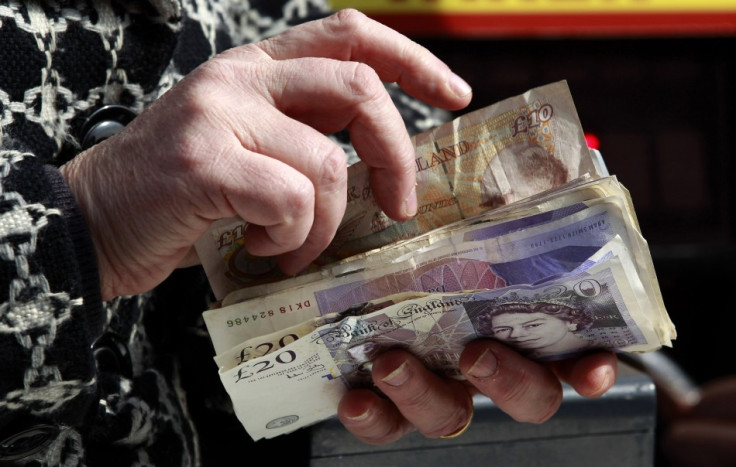Pound recovers from 8-year low versus euro as some analysts predict parity
The British currency suffered its worst run against the common currency overnight on signs of a eurozone recovery.

The pound mounted a recovery on Thursday (24 August) from its overnight eight-year low versus the euro, after official data reaffirmed UK economic growth at 0.3% for the second quarter.
On an annualised basis, the UK economy expanded 1.7% in the second quarter, the Office for National Statistics (ONS) said, down from the 2% reading recorded in the previous three months, but matching analysts' expectations and last month's reading.
The services sector, which grew by 0.5% in the second quarter from the previous three months, was the main driver of growth and there was relatively strong growth in government spending and investment.
It meant the pound rose 0.34% versus the euro at 11:06am BST, changing hands at €1.0878, having tested eight-year lows of €1.0830 in US trading.
Ian Stewart, chief economist at Deloitte, said the post-referendum drop in the pound has knocked consumer spending and hit growth.
"UK exporters are upbeat, but this has not yet to translated into stronger export volumes. Over the next 18 months the UK will likely see subpar growth, but exports and manufacturing can help offset the headwinds from a weaker consumer."
John Hawksworth, chief economist at PwC, noted that business investment was also flat in the second quarter, which may reflect ongoing uncertainty around Brexit. But this was offset by strong growth in government investment.
"Overall, this data confirms the picture of a moderation in UK growth that we expect to continue through the second half of the year. But we don't think this slowdown should turn into a recession due to the fact that employment growth remains reasonably strong and government spending is now cushioning some of the blow to business confidence from Brexit."
However, the pound's woes have led some analysts to suggest the British currency and the euro could hit parity, even though the controversial viewpoint is by no means universal. According to newswire Bloomberg's latest currency survey, of the 62 forex analysts it polled, only two – from HSBC and Morgan Stanley – predict parity or above in favour of the euro by mid-2018.
Meanwhile, holidaymakers and business travellers to European Union destinations continue to feel the pinch with pound having fallen by 10% against the euro since April.
For instance on 24 April, £1,000 changed hands at €1,193.52 minus commission. However, the same sterling amount changed hands at €1,156.10 on 24 May, €1,137.59 on 24 June, €1,113.47 on 24 July and €1,086.27 on Thursday (24 August).
Jaisal Pastakia, investment manager at Heartwood Investment Management, said those heading to EU destinations should not count on a recovery in the pound's fortunes anytime soon.
"The euro's resurgence this year has come on the back of an improving growth backdrop together with receding political risks, following the market favourable election results in the Netherlands and France. At this point, the upcoming German election in September does not look to be a market concerning event.
"Contrast this train of improving events with the UK, where economic momentum looks uncertain."
In addition, political uncertainty is likely to continue to weigh on the pound as party conference season approaches, Pastakia concluded.
© Copyright IBTimes 2025. All rights reserved.




















